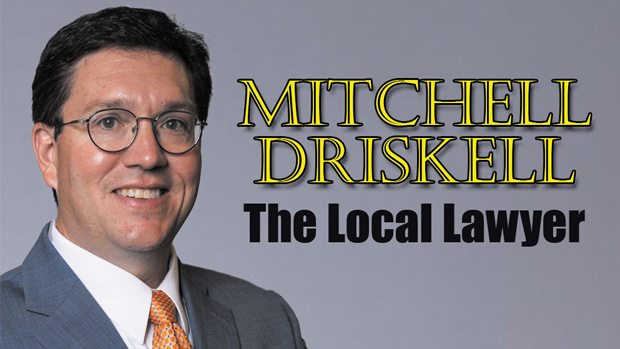
Happy New Year. Here are some of the weird legal stories from 2021 that I did not previously cover here in Oxford’s best local entertainment newspaper.
The Third Amendment is not Dead—Boring, But Not Dead
The Third Amendment gets very little press these days. It prohibits “quartering” soldiers during peace-time. The government cannot make you keep soldiers at your house like they did in colonial times. Apparently, there is a group of lawyers who love the Third Amendment and look for ways to apply it in our daily lives, and they found ways last year. In Supreme Court cases about the constitutionality of making people quarantine due to Covid, the Third Amendment Lawyers Association filed briefs arguing that some of the people being forced to quarantine surely must be soldiers, and some of the places they are quarantining must be owned by others. Therefore, they argued, the government is forcing someone, somewhere to quarter a soldier in violation of the Third Amendment. More interestingly, and it would not take much to be more interesting than that, Third Amendment enthusiasts argue that the Third Amendment implicitly recognizes the right to protect the privacy of your home and the family within it, supporting the argument that a person’s “privacy” right to control reproduction must be respected in the abortion law challenges before the Court. Don’t sleep on the Third Amendment.
MoFo Office Manager Spending Spree
Morrison Foerster is a big, sophisticated law firm with hundreds of lawyers in New York, Los Angeles, Washington, London, Tokyo, Berlin, and beyond. It goes by the unsophisticated nickname “MoFo” in the industry and was recently involved in a very unsophisticated mail fraud case in which former operations manager Andrew Robertson pled guilty. MoFo Andy had a copy of the firm credit card and lost his mind with it—his haul reportedly included Prada jeans, watches, a 60-inch television, more than a dozen pairs of Air Jordans, an Apple laptop, a sleeper sofa from Crate & Barrel, and a 24-inch gold chain necklace. But it gets better, or worse, depending on how you look at it. He bought a gold pinky ring. He bought a “1980s-style prom king costume,” whatever that is. And the kicker, he bought “butt enhancing” trousers from a company called “Rounder Butt.” While employed at MoFo, Round-butt-Andrew was already on parole for stealing $700,000 from another company. I guess when you see that perfect pinky ring and butt enhancing trousers, you throw caution, and your freedom, to the wind. He was sentenced to over three years in prison. Whether or not he wears his Rounder Butt slacks to prison is unknown.
Judge Banns Elf on a Shelf
Last month, Cobb County, Georgia Judge Robert D. Leonard, II, banished all Elves on Shelves from Cobb County. He tweeted, “Tired of living in Elf on the Shelf tyranny? Not looking forward to the Elf forgetting to move and causing your kids emotional distress? I am a public servant and will take the heat for you. My gift to tired parents.” In the Order, he recalled an incident when one of his three kids accidently touched their family elf and was labeled an “Elf Murderer” and accused of making the elf lose his magic by the other two kids. He criticized the damn elves for forgetting to move some nights. Cobb County parents rejoiced until they realized it was just a joke, old Judge Lenny II having some fun through his social media team.
Ice, Ice Baby
He is a rare event—a judge helps a criminal defendant escape law enforcement. It happened back in 2018, but the legal fallout continues. On April 2, 2018, an agent from U.S. Immigration and Customs Enforcement (ICE) arrived at the local court in Newton, Massachusetts to detain a suspected undocumented immigrant who was appearing as a defendant that day on state court charges. The local Judge, Shelley Joseph, helped the defendant evade detention by first asking the ICE agent to wait in the lobby and then allowing the defendant to leave the courthouse through a rear exit while the ICE agent waited in the lobby. Judge Joseph was charged with conspiracy to obstruct justice, aiding and abetting obstruction of justice, and aiding and abetting obstruction of a federal proceeding and faces 20 years in prison. She argued judicial immunity, the idea that Judges cannot be sued or criminally prosecuted for their judicial decisions. That motion for immunity was denied last year in an opinion finding that there was nothing judicial about sending a law enforcement agent outside of the courtroom and helping a defendant escape out the back door. That decision, the opinion said, was a personal, political decision, not part of the Judge’s judicial functions. Judge Joseph might be going to jail herself.
Mitchell Driskell has been an Oxford lawyer for twenty-one years. He practices criminal law, family law, business transactions and civil litigation. Email him mdriskell@danielcoker.com. Follow him on Instagram @mdriskell, Twitter @MODIIItweets, TikTok @DriskellLaw and on Facebook.


